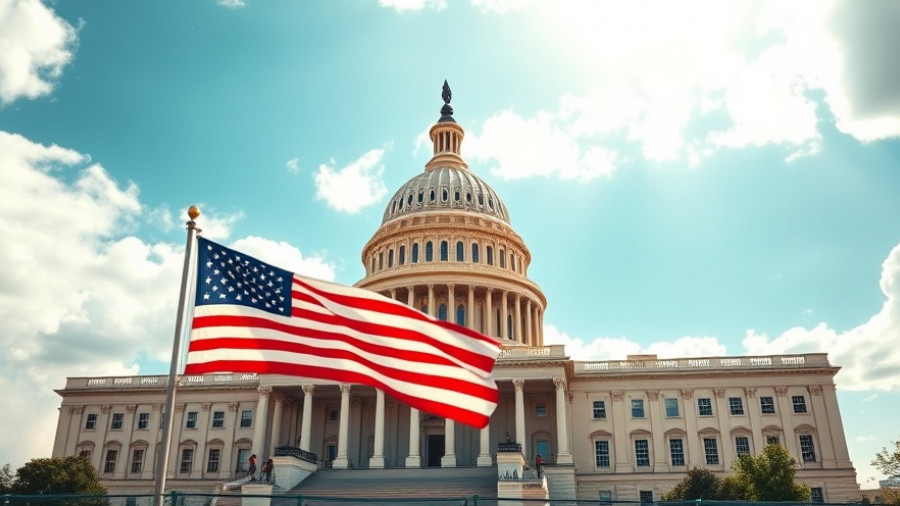
Understanding the Implications of a Credit Downgrade
The United States has recently seen a significant shift in its credit rating. Moody's has downgraded the country's credit rating for the first time in history, dropping it from Aaa to Aa1, with Scope Ratings following suit shortly after. These downgrades are attributed to rising federal debt, government mismanagement, and political gridlock, which collectively challenge the U.S. government's fiscal health. Although the U.S. remains a relatively trustworthy borrower in comparison to other nations, the loss of its top-tier credit rating diminishes its standing and could incur higher borrowing costs.
The Ripple Effect on Everyday Life
This strike against the U.S. creditworthiness isn't just a matter of abstract numbers; it has practical implications for ordinary citizens. With an increase in government borrowing costs, expected hikes in interest rates can affect everything from mortgage rates to credit card fees. As seen in previous downgrades, the fear of rising rates has the potential to send ripples through consumer borrowing and investment markets, pushing average Americans to tighten their financial belts.
Grounds for Concern: Public Finance and Governance
The recent downgrade reflects long-standing concerns around the strength of U.S. public finances, underscored by persistent federal deficits which are projected to climb higher. The Scope Ratings report highlights a looming public debt-to-GDP ratio that is set to exceed 140% by 2030. This situation intensifies worries about the governance of fiscal policy, revealing how internal strife and congressional gridlock can destabilize financial management.
Preparing for Economic Uncertainty
In light of these downgrades, the best course of action is to shore up personal finances. For those with high levels of debt, securing fixed interest rates could safeguard against future rises. Furthermore, diversifying investments and bolstering emergency savings can provide a strategic buffer against a fluctuating economy. Historically, market fluctuations often create buying opportunities; savvy investors should remain vigilant and prepared to seize these moments.
Final Thoughts: A Call to Action
With the U.S. facing unprecedented credit challenges, it’s imperative that individuals take a proactive stance in managing their financial futures. Review your existing debts, bolstered emergency funds, and understand the potential impact of rising interest rates on your financial landscape. Now is the time for both strategic planning and open-mindedness as we navigate an uncertain economic future.
 Add Row
Add Row  Add
Add 




Write A Comment